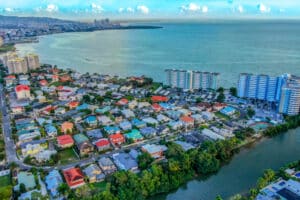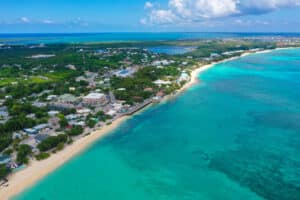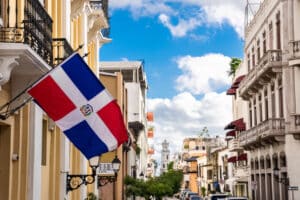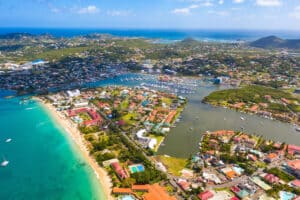Barbados is a popular tourist destination between the Caribbean Sea and the Atlantic Ocean. This sunny island full of gorgeous beaches, national parks, and beautiful resorts welcomes almost one million tourists every year.
But you’ve come to this article with one short question: is Barbados safe for travel? And the answer is a solid “yes.”
Let’s dive into the details.
Are you planning a last minute trip to barbados? We’ve put together all the resources you’ll need for a fun & safe travel:
🛌 Best & Safest Places to Stay in Barbados:
👉 Little Arches Boutique (Serene environment for couples)
👉 Beach View Hotel (My recommendation for family trip)
👉 Oceanview Resort (My recommendation for Solo trip)
👉 White Sands Beach Condos (My recommendation for condo/apartment)
⛱️ Fun Activities & Tours in Barbados:
👉 Catamaran Sea Cruise and Snorkeling Experience (My favourite)
👉 Original Bajan Walking Food Tour
👉 Electric Bike Sightseeing Experience
🚗 Best & Safest Barbados Transportation Services:
👉 Airport Pickup Service – Welcome Pickups
👉 Rent a Car – DiscoverCars
🙏 Stay Safe While Travelling:
👉 Safetywing (for medical insurance)
👉 VisitorsCoverage (for trip insurance)
Is Barbados Safe?
Barbados is considered a safe travel destination. However, tourists should exercise precaution against petty crimes like armed thievery.
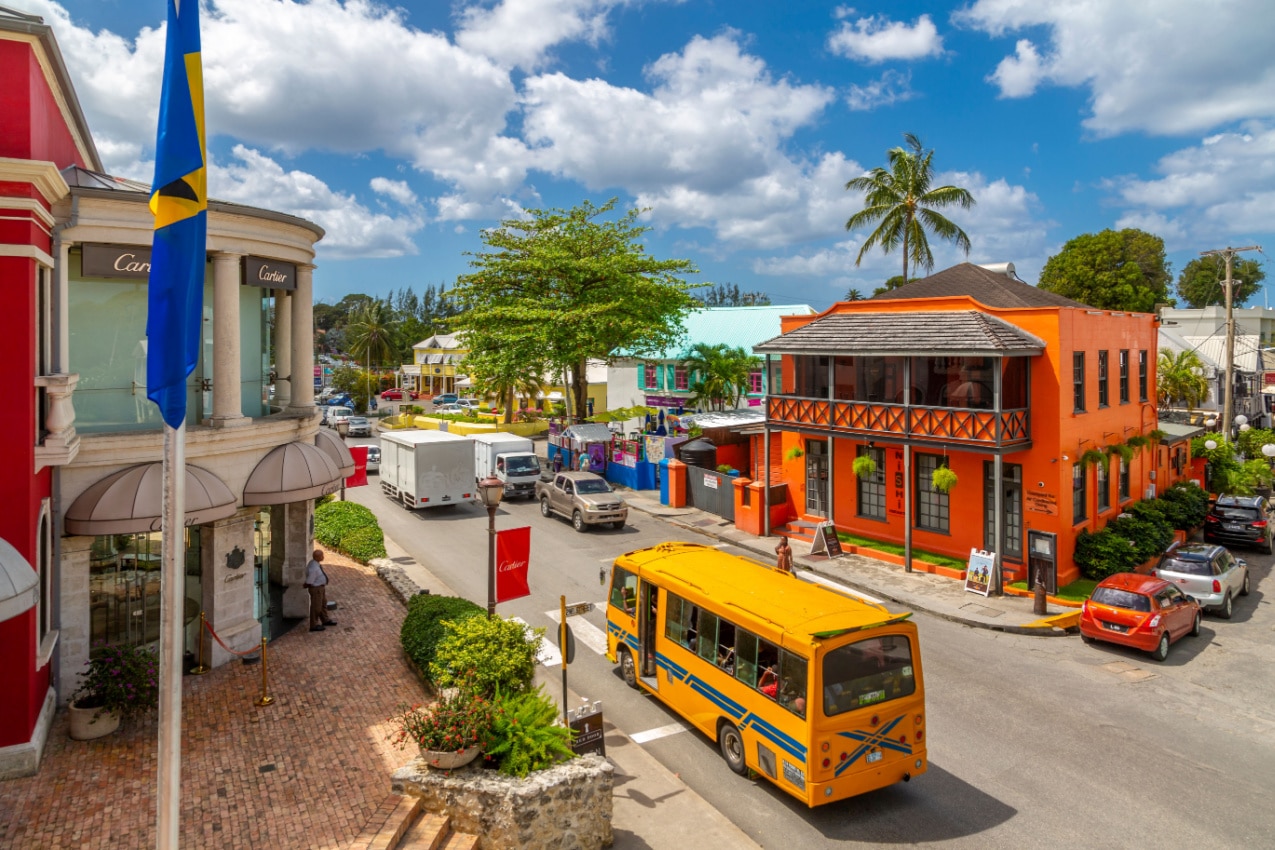
Here’s what you need to know about safety in Barbados in a nutshell:
- Travel advisory: Every major travel advisory gives Barbados the green light as a travel destination.
- Crime rate: Barbados has a moderate crime rate, with theft being the most common crime for tourists.
- Dangerous areas: Tourists should avoid Crab Hill and Nelson Street (Bridgetown) and Wellington Street (Bridgetown).
- Diseases: Although the island has been cleared for COVID-19, there’s a risk of Dengue fever, Hepatitis A, and Traveler’s diarrhea.
- Vaccine precautions: You’re advised to take multiple vaccines before you visit Barbados.
- Natural Disasters: Barbados is outside of the hurricane belt, and there’s a very low risk of a hurricane, tsunami, or earthquake hitting the island.
- Beach safety: Pay attention to the flag system, and stay mindful of dangerous currents.
Are you planning a last minute trip to barbados? We’ve put together all the resources you’ll need for a fun & safe travel:
🛌 Best & Safest Places to Stay in Barbados:
👉 Little Arches Boutique (Serene environment for couples)
👉 Beach View Hotel (My recommendation for family trip)
👉 Oceanview Resort (My recommendation for Solo trip)
👉 White Sands Beach Condos (My recommendation for condo/apartment)
⛱️ Fun Activities & Tours in Barbados:
👉 Catamaran Sea Cruise and Snorkeling Experience (My favourite)
👉 Original Bajan Walking Food Tour
👉 Electric Bike Sightseeing Experience
🚗 Best & Safest Barbados Transportation Services:
👉 Airport Pickup Service – Welcome Pickups
👉 Rent a Car – DiscoverCars
🙏 Stay Safe While Travelling:
👉 Safetywing (for medical insurance)
👉 VisitorsCoverage (for trip insurance)
Travel Advisory for Barbados
Barbados is under a Level 1 Travel Advisory from the US State Department. Tourists are advised to exercise normal precautions as they visit the country.
The categories according to which the US State Department ranks countries around the world are as follows:
- Level 1: Exercise Normal Precautions—The lowest advisory level, indicating minimal risk.
- Level 2: Exercise Increased Caution—Travelers are encouraged to visit the country but need to be aware of the heightened risks to safety and security.
- Level 3: Reconsider Travel—Travelers need to reconsider traveling to a Level 3 destination due to serious risks to their safety and security.
- Level 4: Do Not Travel—Life-threatening risk. Travelers are advised not to travel to a Level 4 destination or leave as soon as possible.
The Government of Canada also advises its citizens to take normal security precautions while visiting Barbados. They recommend that tourists stay mindful of the dangers of petty theft, bag snatching, and pickpocketing.
Furthermore, they emphasize that there have been some reports in Barbados related to violent crime, like armed thievery and assault.
Finally, according to the UK Government, most visits to Barbados “are trouble-free,” but “there have been incidents of violent crime, including gang-related disputed.”
Barbados Crime Rate
According to Numbeo, Barbados has a crime rating of 55.27, which is classified as moderate. Numbeo classifies all countries and cities in the world on a scale with five categories:
- 0 – 20 or very low
- 20 – 40 or low
- 40 – 60 or medium
- 60 – 80 or high
- 80 – 100 very high
As you can see, Barbados is right in the middle of the scale. What drives its rating up is property crimes— like petty theft, and muggings. Numbeo also notes that there has been an increase in overall crime in Barbados in the last three years.
Still, in comparison to other countries in the region, Barbados again stands somewhere in the middle. Martinique, for example, has a really high rating of 82.14, and Guadeloupe is somewhere between the two, with a crime rating of 62.50. The situation, on the other hand, is considerably better in the British Virgin Islands (42.50), Aruba (17.94), and especially Anguilla (12.50).
Overall, you shouldn’t be especially worried about the crime rates in Barbados since most reliable travel advisories about the island are mild.
Still, the ratings we’ve gathered from Numbeo concerning crime and safety in Barbados will give you a good general overview. Keep in mind that the data is based on 50 contributors.
| Crime Rates in Barbados | September 2023 (Last Update) |
|---|---|
| Level of crime | 69.11 |
| Crime increasing in the past 3 years | 84.40 |
| Problem people with using or dealing illegal substances | 54.41 |
| Problem with property crimes such as vandalism and theft | 59.40 |
| Problem with violent crimes | 58.58 |
| Problem with corruption and bribery | 66.67 |
| Safety walking alone during daylight | 78.15 |
| Safety walking alone during night | 43.15 |
How to Stay Safe in Barbados
Although Barbados is safe, there are some things that you should have in mind while visiting this charming destination.
Less Safe Neighborhoods
The three least safe neighborhoods in Barbados are:
- Crab Hill
- Nelson Street (Bridgetown)
- Wellington Street (Bridgetown)
While Bridgetown, the capital, is generally safe during the daytime, you should avoid exploring it at night, especially alone. Barbados is not famous as a vibrant nightlife destination, so hopefully you won’t be that tempted.
Tips for Traveling Alone
- Be careful around ATMs, especially at night
- Don’t flaunt your possessions, especially money, jewelry and technology
- Stay out of deserted, empty, or dark streets and corners
- Don’t drink excessive amounts of alcohol
- Don’t try to buy illegal substances—that is likely to get you in close contact with the local gangs
- Don’t go nude on the beach: Barbados is a pretty conservative community
- Don’t wear camouflage clothing since only the army and the police can legally wear them on the island
Tips for Traveling With Your Family
- Keep your family together and your kids close at all times
- Bring a first aid kit so you’re prepared to treat nasty sunburns, bites, or scratches.
- Keep your kids away from wildlife.
- Don’t be loud or disrespectful to the locals
- Feel free to use the taxi services: unlike other Caribbean countries, they are well-regulated and safe
- Keep a watchful eye on the weather forecast to stay prepared in the case of a sudden tropical storm
Emergency Numbers
- Police Emergency: 211
- Fire: 311
- Ambulance: 511
- Police Hotline: (246) 429-8787
- Queen Elizabeth Hospital: (246) 436-6450
Is There Police in Barbados?
The Barbados Police Service is one of the oldest organized police forces in the area, established as early as 1835.
Its headquarters are located in the capital of the city, Bridgetown, in the area called St. Michael, but there are district police stations scattered throughout the island, in Christ Church, Saint George, Saint Philip, Saint Thomas, Saint Peter, Saint Joseph, Saint James, Saint Andrew, and Saint Lucy.
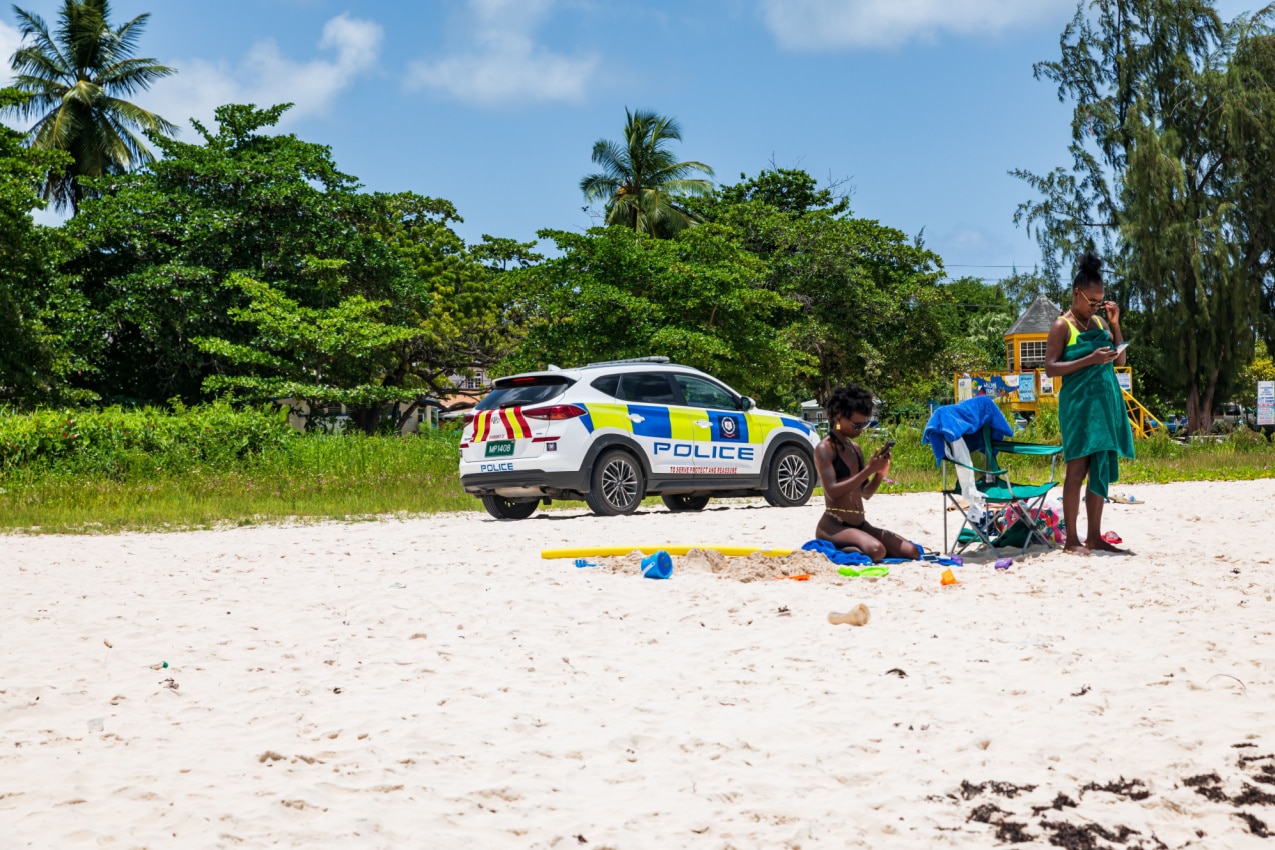
Are Barbados Beaches Safe?
The beaches in Barbados are considered safe, provided that you abide by some common-sense rules, pick beaches that have a lifeguard, and respect the flag system.
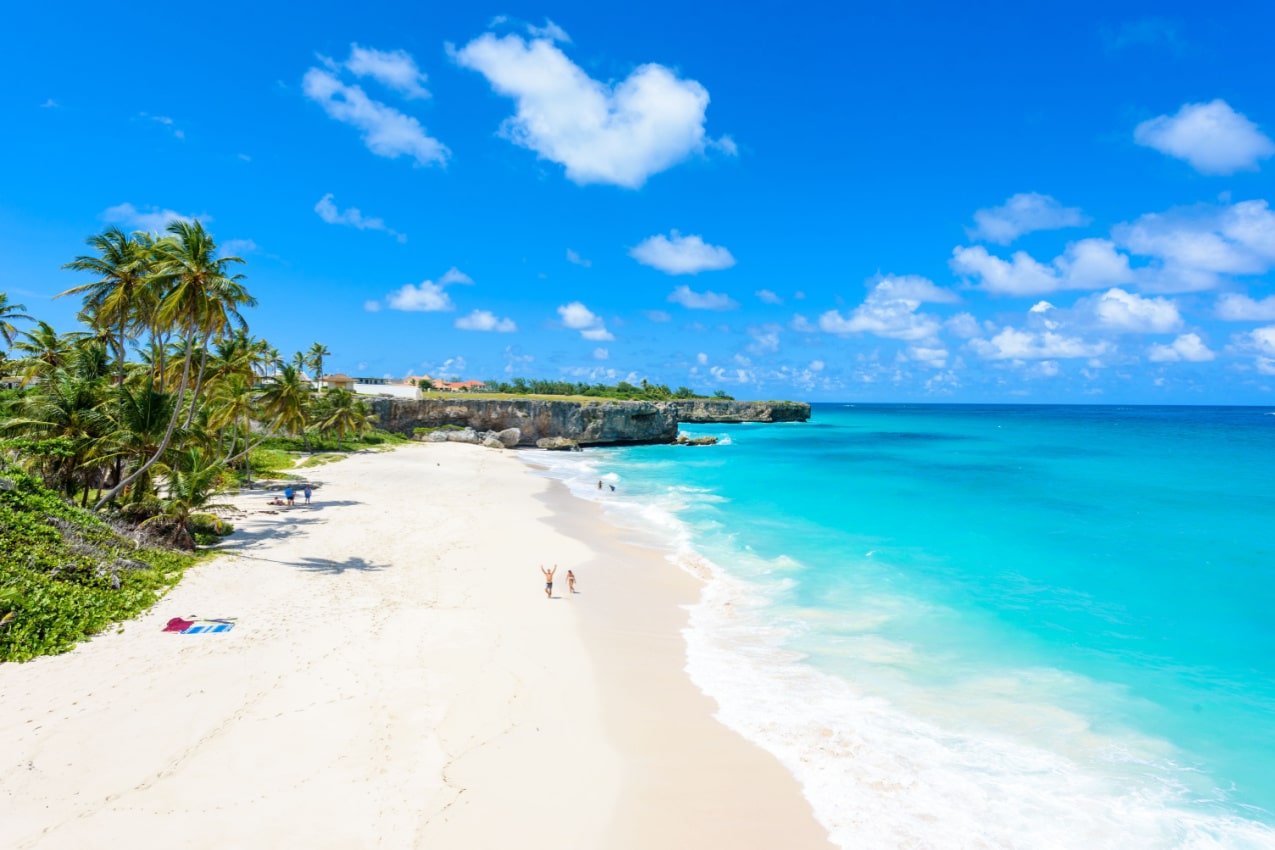
The country uses the flag system to indicate the safety of its beaches. We recommend that you always check the flag before you go to a beach and respect what it says about the conditions of the water on that particular day, especially in relation to dangerous currents.
Here’s an overview of the flag system:
- Black—Do not swim; deadly currents
- Red—Avoid swimming; dangerous currents
- Yellow—Semi-safe; swim with caution
- White—Dangerous marine life; swim with caution
- Green—Safe to swim
The UK Government’s travel advisory for Barbados stresses that the currents around the island can be deceptively strong, even on some of the popular beaches on the west and south sides of Barbados. Bathsheba Beach is one such example. The water on Carlisle Bay, on the other hand, is typically very calm.
The beaches on the island’s east side are particularly dangerous for swimming since they boast very strong currents and large waves. But that’s also what makes Bath Beach, Bathsheba, and Cattlewash great locations for windsurfing.
The best thing you can do to ensure your beach safety is to swim only on beaches that have a lifeguard on watch.
Are There Natural Disasters in Barbados?
Barbados is rarely targeted by natural disasters and calamities, which may include hurricanes, storms, earthquakes, and tsunamis.
Hurricane Information and Precautions
Unlike some other places in the Caribbean, Barbados is outside of the hurricane belt.
That means that during the wet season, Barbados is mostly spared from the powerful and catastrophic storms that frequently strike other Caribbean islands.
On average, five hurricanes happen near Barbados every year. The keyword is “near” since most of them do not make landfall on the island, but continue north without causing any considerable damage, aside from the slightly stronger winds and heavy rains they bring to Barbados.
The last hurricane to make landfall in Barbados was Hurricane Tammy on October 21, 2023. However, Tammy was classified as a category 2 hurricane according to the Saffir-Simpson classification, so it wasn’t considered major.
The last powerful hurricane reported on Barbados was Hurricane Janet in 1955. It was a category 5 hurricane (the highest on the scale) that caused nearly $8 million in material damage and resulted in the loss of 38 lives in Barbados.
To stay updated with the latest hurricane forecast for Barbados, the U.S. Embassy in Barbados advises that you monitor local media and the National Hurricane Center website.
Are There Earthquakes and Tsunami in Barbados?
Generally speaking, earthquakes typically either bypass Barbados or aren’t that strong to cause any permanent damage.
On average, around 15 earthquakes hit the area around Barbados every year. That’s a very small number, especially in comparison to other locations in the wider area, like Trinidad and Tobago. Most of the earthquakes have a magnitude of around 2.5, which is considered low on the Richter magnitude scale.
The most dangerous consequence of earthquakes in coastal countries or islands is that they can set a tsunami in motion. But in this case, the threat is minimal. Tsunamis in Barbados are very rare, the last one recorded in Barbados was in 1939.
Here are the most notable examples of tsunamis that have been recorded on the island:
- In 1755, a two-meter-high tsunami induced by an infamous earthquake that left Lisbon in ruins reached Barbados, but it didn’t cause any serious damage.
- In 1762, a tsunami of unknown height hit the island after forming on the coast of Portugal after another strong earthquake.
- In 1902, a two or three-meter-high tsunami reached the coasts of Barbados after the eruption of La Soufriere Volcano in St. Vincent.
- Finally, in 1939, after another eruption of a volcano—this time Kick-‘em-Jenny submarine volcano near Grenada—struck Barbados.
Disease Risk and Necessary Vaccines in Barbados
While the COVID-19 virus is no longer a threat to travelers in Barbados, there is a risk of exposure to diseases like Dengue Fever, Hepatitis A, or Traveler’s diarrhea.
Dengue Fever is a specific type of virus spread by mosquito bites. The virus causes flu-like symptoms, which may manifest either during the vacation or when you arrive home. The best way to prevent Dengue fever is to use insect repellent or protect yourself by wearing protective clothing with long sleeves.
Hepatitis A, on the other hand, has harsher symptoms, which may include pain in the upper right side of the abdomen, fever, and nausea. It’s highly contagious and mostly transmitted through infected food or unpurified water, including ice cubes in your drink or your cocktail.
The best way to protect yourself from the virus is to get a vaccine shot before you arrive in Barbados. But exercising heightened general hygiene, like washing your food or hands more often, is also recommended. Most people who contract Hepatitis A fully recover without any permanent damage to the liver.
Travelers’ diarrhea is the disease you’re most likely to contract while staying in Barbados. While it’s not seriously dangerous, it can really ruin a holiday — the biggest symptom is diarrhea, but it can also cause vomiting and dehydration. It’s contracted through the consumption of contaminated water.
To eliminate the risk of contracting a disease on your trip, the CDC advises travelers to make sure they’re up-to-date on the following routine vaccines:
- Flu (influenza)
- Shingles
- Diphtheria-Tetanus-Pertussis
- Chickenpox (Varicella)
- Measles-Mumps-Rubella (MMR)
- Polio
They also share additional vaccine recommendations for international travelers or travelers to Barbados.
- Typhoid
- Rabies
- Yellow Fever
- Hepatitis A and B
- Rabies
Carbon Monoxide Awareness and Prevention
There have been no cases of carbon monoxide poisoning in Barbados. The island is completely safe in that respect.
However, there was a highly publicized case of the poisoning of three American citizens in a resort in the Bahamas in 2012, which inspired a lot of hotels in the region to install CO detectors in their rooms.
What you should know about carbon monoxide is that the gas is so deadly because it’s practically undetectable to the senses: it’s odorless, tasteless, and completely invisible to the naked eye. It can only be detected by a CO alarm.
The usual symptoms of carbon monoxide poisoning are vomiting, vertigo, headache, and stomach ache. Prolonged exposure to the gas may lead to unconsciousness, permanent lung or brain damage, or in extreme cases, be fatal.
We recommend that you always check whether your accommodation has a CO detector before booking.
Potential Danger from Land and Marine Animals in Barbados
Although Barbados doesn’t come out on top when you compare it to some of the other Caribbean islands, it’s still a country with incredible biodiversity. But, there are multiple wildlife species that can be unpleasant to encounter.
Danger from Land Animals in Barbados
There aren’t any life-threatening land animals in Barbados, but there are species you want to be mindful of.
We’ll start with an insect—mosquitoes are the biggest problem for travelers in Barbados. Their bites can cause redness and swelling and spread diseases like Dengue Fever.
Luckily for everybody, there are no venomous snakes, spiders, or reptiles on the island. The mammals are another story.
- The giant African Land Snail carries a dangerous parasite that can cause brain damage or meningitis if you come into contact with it. Fortunately, the population on the island is not very high.
- Encounters with mongooses can be tricky. Although they usually don’t attack unprovoked, they can, if they feel threatened. If you meet a mongoose, just pass it quietly to avoid a direct encounter.
- Barbados green monkeys are tiny, very cute, and mind their own business, for the most part, but—like the mongoose—they can lash out if provoked.
You are sure to meet a mongoose or a green monkey at some point during your stay in Barbados. Admire them from afar, but don’t engage them directly.
Danger from Marine Animals in Barbados
There is a low chance of a shark encounter in Barbados.
- Sharks are uncommon on the island. If there is a shark sighting, it’s usually a tiger shark that has come close to the coast of Barbados and its shallow waters. Although they don’t hunt humans, they can attack them, even when unprovoked. The best thing you can do to minimize the risk of a shark encounter is to pay attention to the flags and the lifeguard on the beach where you’re at.
- Stonefish are poisonous and spiky fish that hide under sand and marine plants. They rarely bite, but their spikes release a deadly toxin. If you step on a stonefish, immediately seek medical attention—you’ll likely be prescribed antihistamines and antibiotics.
- Man O’ War Jellyfish, while not deadly, have a painful sting. An encounter with them is more likely between March and November when they usually migrate to the waters around Barbados. When this happens, the authorities immediately close the beach down and issue a warning.
Barbados Weather Patterns
Barbados has a tropical monsoon climate, roughly characterized by two global seasons: wet and dry.
The weather is usually very pleasant, with an average temperature of around 86°F (30°C) and more than 3,000 hours of sun annually. The rain starts to fall more abundantly only during the wet season when there’s a higher chance of powerful storms.
Generally speaking, the dry season lasts from December to April, and the wet season from July to November. The period in between can usually go either way, but the rainfall almost doubles from May onwards.
Spring
Spring in Barbados is usually the driest and has the lowest level of humidity. The temperatures hover around 84 and 86°F (29 or 30°C), and the rainfall rarely goes higher than 62 mm in April.
Summer
Summer signals the start of the wet season. The temperatures are consistently high, again around 86°F (30°C), but the winds are stronger, and the rainfall more intense — it slowly rises to 169 mm by July. The humidity is also quite high, at around 81%.
Autumn
Autumn temperatures are still consistent, at around 86°F (30°C). But the rainfall intensified even further, reaching its peak in October, with around 216 mm. One significant change is that the days are shorter, and the sun shines for only seven hours a day. But, sunlight hours climb to eight hours in November, as the wet season slowly comes to its end.
Winter
Finally, winter is very dry in Barbados. The temperature is 84°F (29°) on average, and the rainfall is at its lowest in February, rarely going above 42 mm. The humidity is also low, at around 75%.
When is the Best Time to Visit Barbados?
The best time to visit Barbados is during the dry season, from December to May. That’s when the weather is at its best — the temperature is not astronomically high, the humidity is low, and rainfall is scarce.
Plus, there is practically no risk of hurricanes or stronger tropical storms during the dry season. That’s when it’s peak tourist season and Barbados offers the perfect weather for relaxing on the beach, trying different water sports, or visiting major landmarks like the Harrison’s Cave Eco-Adventure Park.
Barbados Travel Safety Recap
Barbados is a beautiful and safe island. If you decide to go, just keep in mind to exercise normal travel precautions and securely protect your belongings since the island’s biggest problem is petty theft—which often takes place on the beach.
The weather is as good as it gets, with a lot of sunny days, a small number of depressing rainy days, and a very, very low chance of catastrophic hurricanes, earthquakes, and tsunamis.
